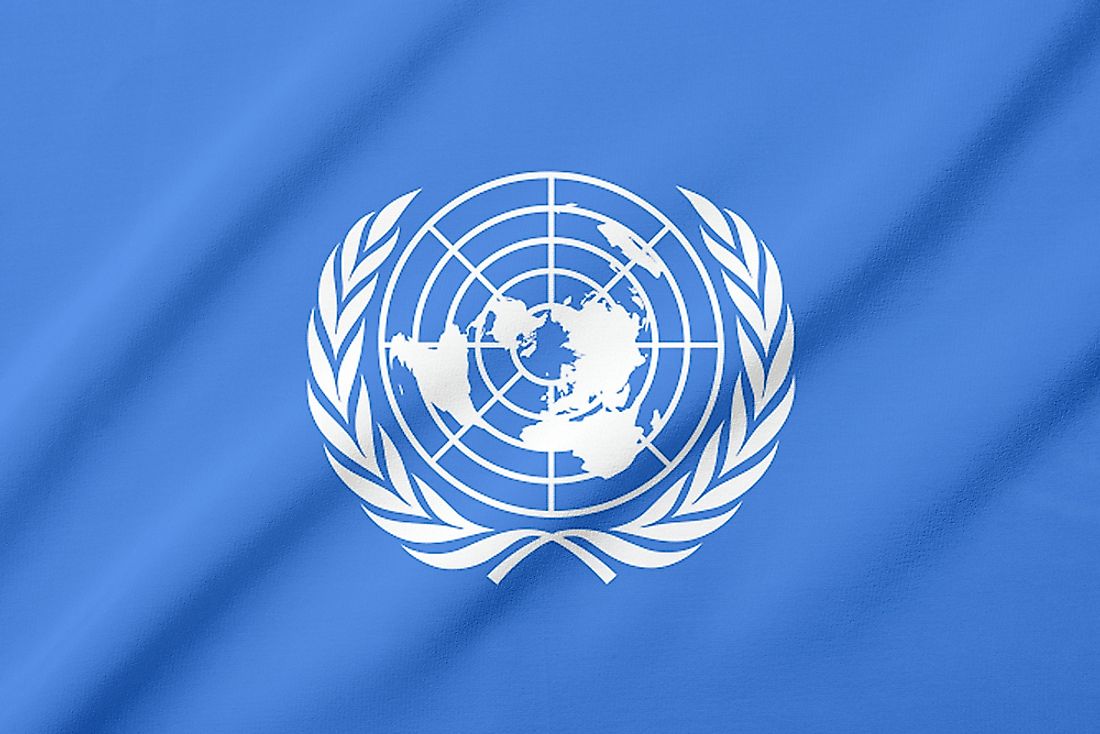What Do The Colors And Symbols Of The Flag Of The United Nations Mean?

Flag of the United Nations
The current flag of the United Nations was officially adopted on December 7, 1946, just over one year after this international organization was founded. The design of this flag consists of a light blue background with a white image located at its center. This image is made to look like a globe. It is presented from the perspective of looking down on the world from the North Pole. It contains several of the continents of the world, with the exception of Antarctica. The continents portrayed on the flag of the United Nations are surrounded by 5 circles in a target-shaped design. These circles are also crossed by several lines of longitude, including the International Date Line and the Prime Meridian, which are situated so that these two lines bisect just at the center of the world map. In addition to this design, a wreath of olive branches is situated just below the globe. Its leaves wrap around the majority of this global design and are also white in color. The flag of the United Nations may be presented in a height to width ratio of 2 to 3, or of 3 to 5.
Symbolism of the UN Flag
Each of the colors and images of the flag of the United Nations holds a special symbolic meaning for the organization and its members. In fact, this design was chosen by a special task committee, whose original intention was to create an emblem that could be used by UN members as a lapel pin in order to identify their membership in the organization. The blue background is meant to symbolize a peaceful environment and is said to be the opposite of the traditional red color, which often represents war and the lives lost during war. Although it is typically light blue in color, the United Nations has never officially defined the exact shade of blue that should be used in the flag. The olive branch wreath also represents peace, which is one of the primary goals of the United Nations.
Variations of the UN Flag
The flag of the United Nations has remained largely unchanged since it was first implemented in 1946. In the beginning, however, the primary background color was considered a grey blue, rather than the light blue seen today. Additionally, the shapes of the continents displayed was different. In the original version of this flag, the US was placed at the center of the globe, representing its role as a host member country. The view of the globe has always been from the North Pole perspective, although the original projection did not allow South America to be represented in its entirety. Argentina, in particular, was partially eliminated from the flag, a fact that the original creators accepted given that Argentina had no plans to become a member state. Over time, however, UN representatives decided that no country should receive preferential representation and no country should be eliminated from the design. This original design also omitted the International Date Line and the Prime Meridian lines of longitude, due to its skewed perspective.











